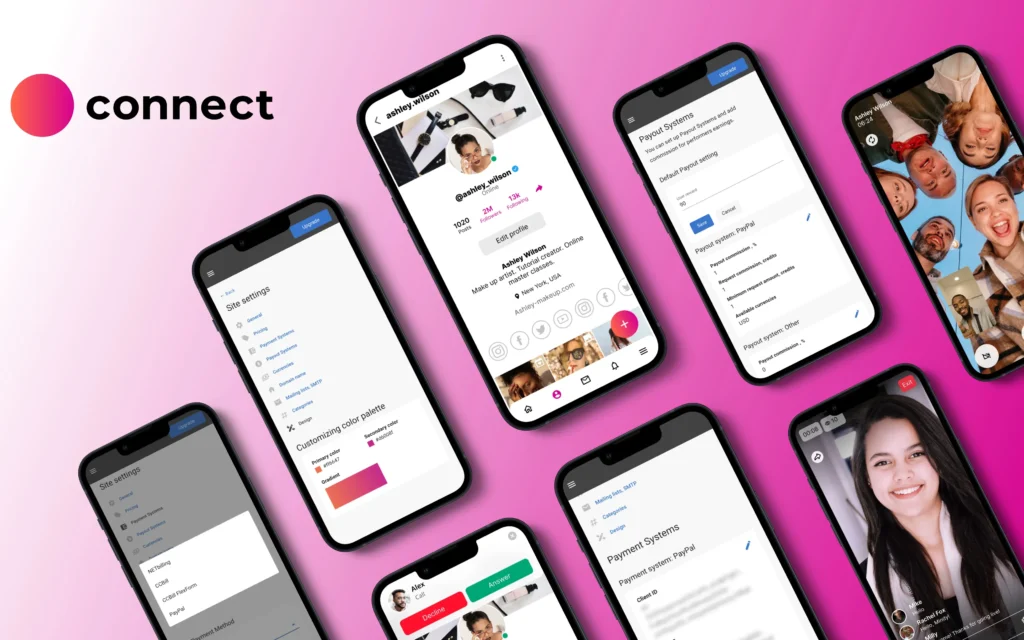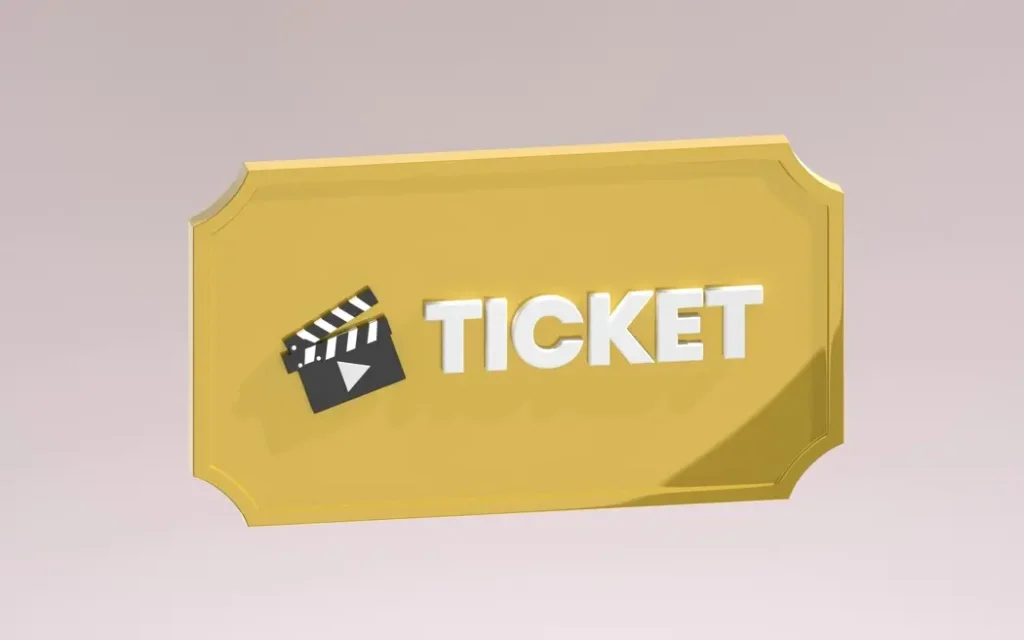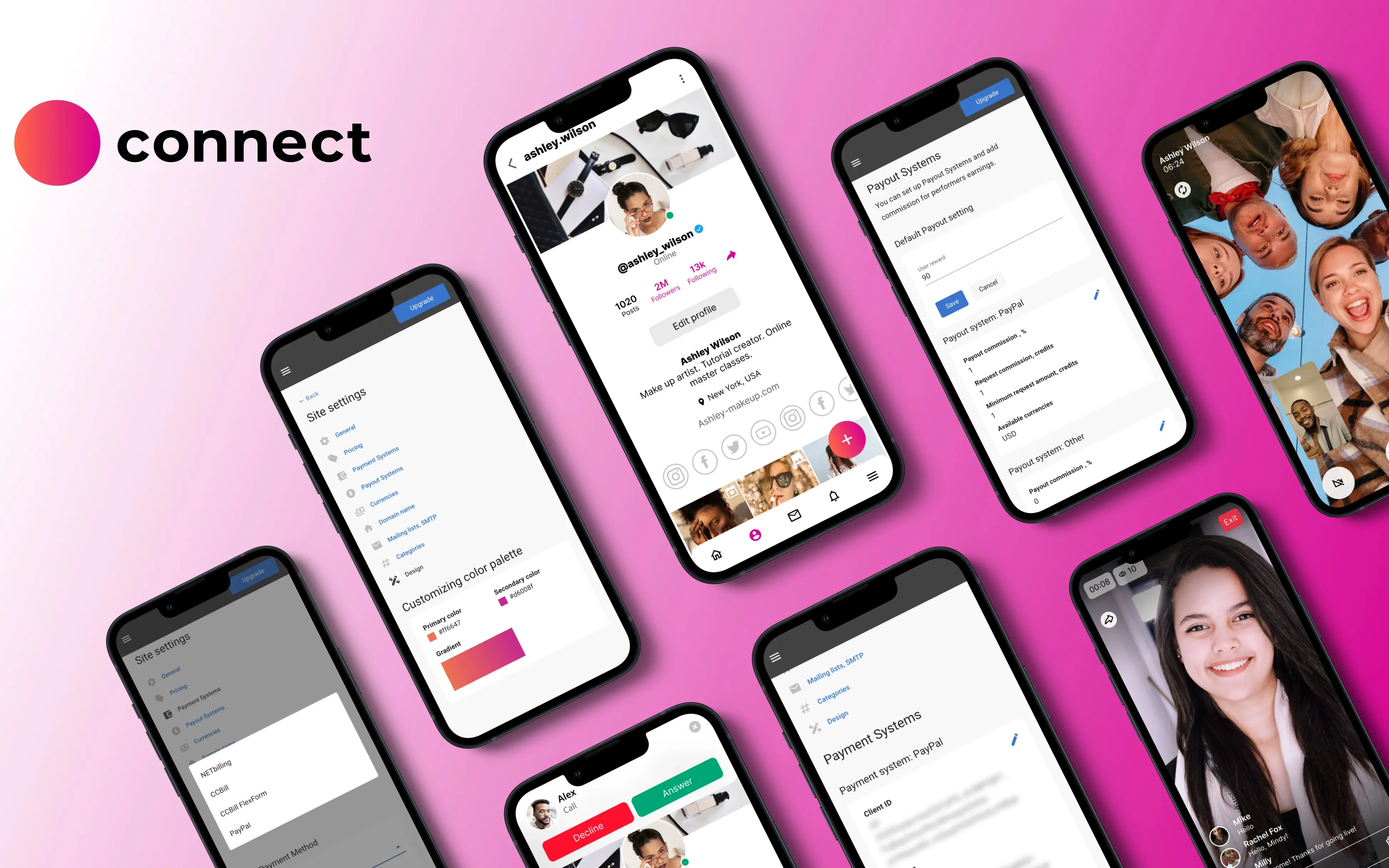Essential Tips for Selling Tickets Online in 2026
Selling tickets online in 2026 requires more than just putting together an event listing, like the ones that are seen everywhere—the game has changed. This article will outline strategies to help content creators and e-commerce entrepreneurs find many ways to effectively drive ticket sales.

selling tickets online
Selling Tickets Online: The Foundation of the Sales Funnel
There is no secret that selling tickets online is much more than setting up your event and waiting for buyers to arrive. It’s all about laying down the groundwork for a sales funnel to bring potential attendees from simply curious to committed. Whether you’re selling tickets to an event with hundreds or thousands of guests, you always want the customer to have the easiest buying experience possible.
Selling tickets online is all about ease and convenience. Today’s customers expect to find events quickly and easily, purchase tickets at the click of a button, and receive immediate confirmation without the need for a customer support line. If your ticketing process is clunky, or if customers run into points of confusion, they will leave before they ever finish browsing. So, mastering how to sell tickets for an event online means you must heavily consult the buyer’s user experience. A smooth, trustworthy, and transparent checkout process is key.
How to Sell Tickets Online?
But there’s more to selling tickets online than just digital purchase options. Selling tickets online is just the beginning of your event marketing funnel. When someone buys a ticket, you are not only locking in revenue. But you are also collecting valuable data for future use. This data can begin the building of a direct relationship with your audience, which helps in the long term with personalized marketing and community loyalty building.
So, whether you’re a seasoned event pro or just holding your first event, remember this: selling tickets online successfully is much more than the sale itself. First, make it easy for people to find your event and complete their purchase. Then leverage the data and insights to nurture these new connections and build your audience. In the upcoming sections, we will discuss everything you need to know to sell tickets for your event online effectively.
Choosing a Platform for Selling Tickets to an Event

Now that you fully understand how valuable it is to sell tickets online, the next big decision you will have to make is how to choose a ticketing platform. There are many different ticketing platforms to choose from, including large platforms like Eventbrite and SeatGeek, as well as niche platforms such as Eventcube.
Each has its pros and cons, with some focusing on ease of use with lots of integrations with other marketing tools, while other platforms have hefty fees and limited customization of your ticket sales page. There are even some platforms that can give you lots of control over merchandising and customer data but require greater technical knowledge to set up. If you would like to learn more about the best event ticketing software platforms, check out this article as well.
How to Sell Tickets Online for an Event?

If you want to sell tickets to an event and truly have ownership of your customer relationships, think carefully about the data each platform provides. Frequently, an informal complaint from organizers is that they don’t have access to their customer data, thus limiting their ability to create long-term relationships and personalized marketing. For these reasons, you should explore solutions that provide flexibility and ownership.
When you are deciding how to sell tickets online for an event, consider your budget, the size of your event, and how much control you want over the process. If you want an easy, off-the-shelf solution, and customer support is important, a popular platform may suit your needs. However, if you want to take full control over your ticketing experience and reduce fees, look into a white-label platform where you control all aspects of the user interface, operations, and data.
Your ticketing platform must support your objectives for your event and your brand. Moreover, your ticketing decision is also a component of your overall ticket sales strategy and base. So, put in the time to review the options, work with demos, and read testimonials around each solution. Making a sound decision here will simplify all facets of ticket sales, ensure happy customers, and give you the best practical data to support your marketing and outward-facing communications.
Marketing Channels to Amplify Ticket Sales

Now that you have selected a platform to sell tickets to an event, it is time to make your event shine through your smart marketing. The fact is, no matter how great your event is and how strong the experience, people need to hear about it first. And that is why your utilization of the proper marketing channels can now be your secret weapon for success.
SEO
When thinking about how to sell tickets to an event online, prioritizing SEO should be high on your list. Creating an event page, along with optimizing your content to show up on search engines, is important to create organic traffic. Use keywords wisely, write an engaging description of your event, and create backlinks to increase your presence and visibility without always paying for advertisement.
Paid Advertising
Of course, the speed at which paid advertising gets you to sales is unparalleled, especially when you use targeting. Using paid ads such as Google Ads and Facebook Ads lets you break down targets based on interests, behaviors, and location to ensure your promotion goes to the right audience. This is your actual audience base and the group most likely to attend. Just make sure that you are sure about your budget and track how many have attended versus spent. Tracking return on investment on these paid ads is essential so you don’t use up your whole budget.
Affiliate Marketing
You could work with bloggers, social media influencers, or industry affiliates, who will promote your event to their follower base while receiving a commission on ticket sales. Depending on the size of the social media influencer, you can expand your audience without the risk of spending upfront.
Email Marketing
Never overlook the power of email marketing as well. If you have an email list of your previous event guests or signups, throw it out to nurture your customer base and remind potential attendees. Sending timely, personalized emails can really assist with creating that urgency and converting the hesitant buyers.
Analytics
Above all things, be certain you always measure your marketing efforts. Analytics should tell you which channels drove substantial results while increasing ticket sales. This way, you have the foundation to build on the tactics that work best for you and pivot or even discontinue tactics that do not.
When you bring SEO, paid ads, affiliate marketers, and email marketing together, you will be able to establish a multi-channel engine to consistently generate ticket sales faster than you can say “dollar bills,” “corporate sponsorship,” and “cash flow.” Getting your event in front of those people no matter where they exist online is a critical piece to the ticket-selling puzzle as we move further into 2026.
Selling Tickets Online: Marketing Channels to Amplify Ticket Sales
| Marketing channel | Key benefits | Best practices | Notes |
| SEO | Generates organic traffic for event listings. | Be strategic with keywords, write compelling descriptions, and create backlinks. | Cost-effective, lean, and gives you long-term results. |
| Paid advertising | Reach the target audience efficiently. | Segment by interests, behaviors, and location. Have a clear budget and track your ROI. | Google Ads and Facebook Ads are different platforms to advertise on. |
| Affiliate marketing | Expand reach with little cost up front. | Partnerships with bloggers and influencers. Commission per ticket sold. | A win-win solution has the added benefit of using trusted voices. |
| Email marketing | Nurtures leads and creates urgency. | Personalized, timely emails; past attendees, past signups. | Loyalty and repeat. |
| Analytics & tracking | Measures efficacy of channels. | Clicks and conversions improve campaigns by the numbers. | Essential for focusing efforts on high ROI. |
Dynamic Pricing to Maximize Revenue

One of the smartest strategies for selling tickets online in 2026 is dynamic pricing. Dynamic pricing, as simply as possible, allows you to price your tickets more based on a set of criteria instead of a flat price. Its main purpose is to increase the likelihood of optimizing your revenue on your event while still maintaining accessibility for buyers.
For example, you might want to give early bird specials to your eager buyers when you first release tickets for sale, then progressively increase your ticket prices as your date gets near and tickets are consumed. Alternatively, you might want to offer special promotions on slow-demand days to push ticket sales and fill empty seats. Dynamic pricing gives you the flexibility to respond to purchasing signals so you can move tickets faster.
The same data and AI tools can also be leveraged to capture those very same sales processes, and pricing changes happen automatically. This can not only save you time but also the potential, better failure of losing sales opportunities or worse, overpricing and discouraging buyers too.
Dynamic pricing often works well for events that are in demand, where absence and urgency are higher. It also helps ad organizers manage their inventory and cash flow in a better light. If done correctly, it can be beneficial for everyone. Buyers feel they are maybe getting a fair value through various stages, and you maximize your event profit overall.
Learning how to manage dynamic pricing well in a busy ticketing space may give you a competitive advantage and increase your ability to sell tickets to an event thoughtfully, based on data, for your event.
Retargeting: Bringing Back Interested Buyers

It can be an effective tactic for selling tickets online. Retargeting is a powerful yet often lightly used tactic that focuses on reconnecting with people who have visited your event or expressed an interest in your event. So, how does retargeting work?
Once someone visits your ticket page and does not buy a ticket, a pixel is installed—which is a small piece of code that tracks everyone’s visit to that page. You are then able to serve those individuals related content advertising on Facebook, Instagram, or Google Ads and tell them about the event and the fact that you are offering a price discount.
Another method of retargeting is through cart abandonment emails. When buyers add tickets to their cart but leave the site without purchasing the ticket, a friendly email when they return to the site may assist with closing the sale. Personalization with the email, using their name, the event they wish to attend, and a brief call to action can have a longer-lasting effect than you may imagine.
Measuring your retargeting campaign will be essential, as with any campaign. Key metrics such as click-through rates and conversions will all help you see what messaging is the most effective for your campaign and allow you to optimize for your next campaign. The real beauty of retargeting is that you are simply following up with “warm leads,” people who have already indicated that they are interested in your event. It is a cost-effective way to generate more ticket sales.
Incorporating retargeting and ongoing engagement into your sales strategy for tickets brings your event back to the minds of those other potential visitors, increasing the opportunity that they turn into paying customers.
Keep Your Customers’ Data to Yourself: The Key to Long-Term Event Success

Many ticketing apps will tell you they are going to collect customer information on your behalf. But many of them do not provide you with actual access to or control of this information. Not owning your data limits your ability to form lasting relationships.
When you own your customer data, you can personalize how you market your offers and create in-depth loyalty programs. You can better understand your audience so that every aspect of your event goes off without a hitch, from marketing until the customer has completely disengaged after the event. Most importantly, you are allowed to keep these contacts for your future events rather than losing them to the ticketing app.
In a world where we are increasingly being advised by artificial intelligence and told that data is our most valuable asset, owning your data is becoming less of a luxury and more of a necessity. Owning your data cuts costs, ensures that your marketing has more impact, and gives you the freedom and flexibility to build excitement with customers.
This is where Scrile Connect comes into play. It is a product that provides you with ownership and control over your event sales and customer relationships. Let’s take a closer look.
Revolutionizing How You Sell Tickets Online With Scrile Connect

Scrile Connect is a new and innovative way to sell tickets online that allows you the freedom to manage ticket sales in a powerful way. It offers fewer fees, more flexibility, and, most importantly, ownership of the customer data.
With Scrile Connect, you get a great white-label ticketing solution, giving your customers your brand experience from front to back. This white labeling improves trust, which drives ticket sales. The platform is made to save time and money while minimizing the ridiculously high fees often charged by any ticketing product out there.

Any money saved can be invested back into your promotion or event itself. Moreover, with Scrile Connect you have access to lots of analytics and marketing tools that can help you improve your ticket sales over time.
On top of that, you can set dynamic pricing, create promotions, and offer your audience personalized experiences based on audience insight. All with ownership of the customer relationship and data.
If you are interested in owning the ticket sales process and addressing ridiculous costs while developing a fan base, then it’s worth considering Scrile Connect.
FAQ: Selling Tickets Online

What is the best site to sell tickets?
The best site to sell tickets is going to depend on your event size, budget, and desire for control. Many well-known platforms like StubHub, Ticketmaster, Vivid Seats, SeatGeek, and Gametime have large audiences and are easy to use. But they also come with higher fees and little control over your customers’ data. If having your own audience and more cost-effective options are important to you, then you should look into the solutions, which have a white-label platform, allowing you to be the owner of your event.
How to sell tickets to people online?
The best site to sell tickets. Selecting the right ticketing platform is the first challenge ticket sellers will face in selling tickets to online events. For example, Eventbrite has event-creating tools and marketing prospects, connects you with a specific target audience, and will monetize your free ticketing experiences. Marketing is the fastest and most scalable way to increase ticket sales for your online event. Use SEO, paid ads, and affiliate and direct marketing campaigns to scale your online event ticketing. Consider dynamic pricing to increase revenue too. Retargeting is also an effective way to convert browsers into buyers. customers’ data.
Do you make money reselling tickets?
Definitely yes. Reselling tickets for money is possible. However, it largely depends on the event being sold, overall popularity, demand for tickets, your actual buying strategy, and more. Professional resellers make thousands on top-demand events after purchasing tickets at face value or below base prices and selling them for higher prices. Most novice resellers are able to gain a few hundred dollars an event when they pick the right tickets and timing of sales.
Read also
| Article | Why it’s worth reading |
|---|---|
| Virtual Tickets Guide: Monetise Events 2026 | If you’re already working with online events, this guide helps you structure virtual ticket types, access rules, and delivery flows so you don’t lose money on tech or logistics. |
| Increase Ticket Sales Fast: Tactics 2026 | Once your basic setup is ready, this article shows how to actually sell more tickets using scarcity, bundles, promo codes, and simple marketing tweaks that move the needle quickly. |
| Virtual Event Pricing Strategy 2026 | If you’re unsure how much to charge, this piece explains pricing models, tiers, and discounts for virtual events so you can maximise revenue without scaring away your audience. |
| Best Event Ticketing Software 2026 Review | When you understand strategy, the next step is tools: here you can compare ticketing platforms and choose software that supports your pricing, upsells, and access control logic. |
